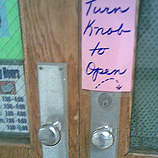It turns out kids in wealthier homes have higher IQs, not because of genetics but because of environment. Surely you can be frugal (or just plain poor) and raise a smart one? A psychology professor suggests you focus on praising effort over achievement, and teach delayed gratification—something that also helps when it comes to financial responsibility, so it’s a win/win skill. You should also explain that IQ is expandable, not inherent: “Students exposed to that idea work harder and get better grades.”
parenting

What's Harder, Having "The Money Talk" With Your Kids, Or Your Parents?
For some reason, there’s little more difficult money-wise than talking to our loved ones about money. We’re not so sure why this is the case, but for some reason the financial conversations aren’t that easy between one generation and the next. The Wall Street Journal brings up the issues associated with family money discussions in a couple of recent articles…

Split A Sitter, Save A Bundle
Here’s a good way to save a bundle on your bundle of joy – share a sitter with a neighbor. By dropping off her 15-month-old at a neighbor’s place 4 days a week, Real Simple reader Maureen Dempsey says she saves ~$400 a month. The article doesn’t specify it but I imagine babysitter watches both kids at the same time for a little bit more but not as much as hiring two separate sitters. Plus Maureen’s kid also gets to interact with another kid at the same time. Surviving the recession is all about working together and splitting up costs. [via Real Simple] (Photo: Ordinary Guy)
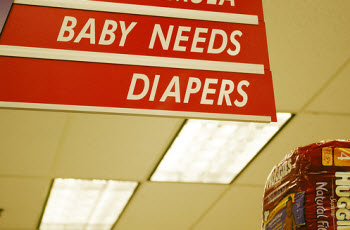
3 Ways To Cut Baby Costs Without Feeling Like A Terrible Parent
Our sister publication Consumer Reports knows that you’d like to trim your baby budget without risking the safety of said baby, so they’ve put together 3 tips that will help you do just that.

The Recession Spares Nothing, Not Even Puppies
Ever feel like the poor state of the economy is impacting every area of life? Well, it is! A few examples popping up in some surprising places, like animal shelters…
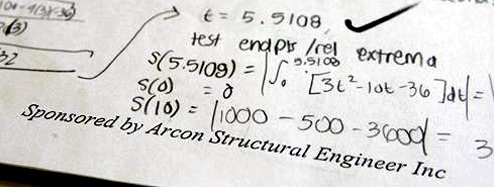
Teacher Sells Ads On Tests To Cover Printing Costs
Left to fend for himself after budget cuts, His tests cost over $500 a year to print, but this year he only got $316, one calculus teacher resorted to selling ads on quizzes and tests to cover his printing costs. $10 for quizzes, $20 for tests, and $30 for a final.
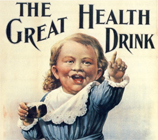
FDA Sets Acceptable Melamine Levels For Baby Formula
Mommy, I’m hungry, can I have more melamine? Sure thing, sweetie, because the FDA established that 1 part per million of melamine in baby formula is cool, as long as an additional chemical isn’t present.
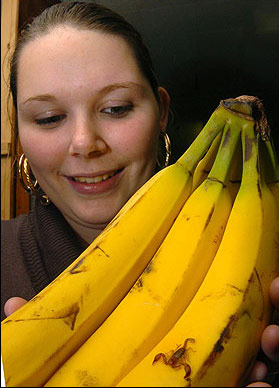
Mom Finds Scorpion In Bananas
A young mom found an Israeli Gold scorpion in a pile of bananas she picked up from ASDA, a UK supermarket chain owned by Walmart.
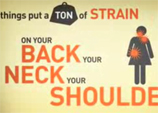
Motrin Retracts Ads After Babywearing Mamas Protest
So, Motrin made an ad trying to target babywearers, that is, parents, who wear their babies in a sling. The ad spoke with winking and jaded knowingness about how babywearing was a fashion statement and caused various back pains that could be alleviated with Motrin. Unfortunately, it seems they never tested the ads before actual babywearing parents. That knowingness? Yeah, it wasn’t actually based on knowing anything.
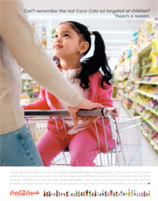
Coke Never Advertised To Kids, Is "Wholesome"
I don’t have kids, but if I did, instead of breastfeeding them I would give them bottles of Coke. That’s because Coke is “wholesome.” And if they grew up drinking Coke, it would be because of the decisions I made and choices I taught them to take, because Coke has never advertised to kids. Both these “becauses” are supplied by Coca-Cola. See, Dr. Dr. Yoni Freedhoff spotted an ad page 1632 of the June 17th edition of the Canadian Medical Association Journal that said:
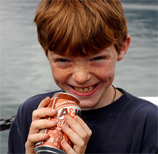
Banning Soda Machines In Schools Only Decreases Consumption 4%
A new study says banning soda machines in schools only decreased kiddie soda pop consumption by 4%. Guess the soda kids were drinking in school wasn’t necessarily being bought at school.
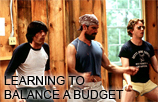
Screw Basket-Weaving, I'm Going To Personal Finance Summer Camp
Here’s four summer camps where kids will learn something really useful: how to manage their money. What a cool idea. I wish I had gone to one in my youth.

Should 8-Year Olds Wear Contacts?
The WSJ Health blog reports that Johnson & Johnson’s Vistakon division thinks the best way to increase sales is to decrease the age, from 15 to 8, as the time kids should start wearing contacts. A J&J sponsored study says it’s safe, and that kids can better enjoy sports and have improved self-esteem, but an ophthalmologist expressed concern that somewhere in between the frog-catching and BB guns (you’ll poke your eye out!) there’s a real risk of infection. What do you think?
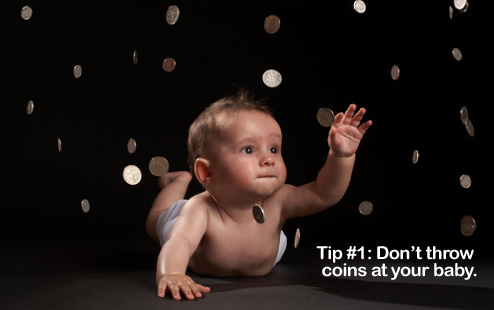
Advice On How To Raise Financially Savvy Kids
CNN asks some money experts for tips on how to teach kids about personal finance. Laura Levine, the executive director of Jump$tart Coalition for Personal Financial Literacy, says she uses a special piggy bank for her 3-year-old son—it has four chambers, “one for saving, one for spending, one for donating and one for investing,” and helps teach him that money is not just for “one thing.”
../../../..//2008/03/19/freakonomics-looks-at-an-economist/
Freakonomics looks at an economist and his experiences applying his knowledge to parenting. [Freakonomics]

Unusual Ways To Teach Kids About Money
It seems like there are a million different ways to teach kids about money. And of all the ideas available, Wall Street Journal personal finance writer Jonathan Clements often has some good, albeit unexpected thoughts:
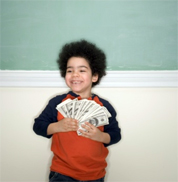
Should We Bribe Kids And Teachers For Good Grades?
Here’s a question where money meets ethics: should kids be paid for good results in school? No, we’re not talking about parents dishing out the occasional $5 or $10 bill to junior for getting an “A”. Instead, there’s a new sheriff in town. Now schools and teachers are doing the giving and are handing out much more than most moms and dads. The details:
The fourth graders squirmed in their seats, waiting for their prizes. In a few minutes, they would learn how much money they had earned for their scores on recent reading and math exams. Some would receive nearly $50 for acing the standardized tests, a small fortune for many at this school, P.S. 188 on the Lower East Side of Manhattan.
And it’s not only the kids making money off the scores…
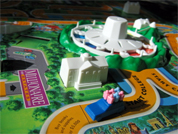
What You Can Learn About Personal Finance From The Life Board Game
Want to teach your kids about personal finance? Then pull out the classic board game “Life.” Personal finance blogger Life teaches several practical money lessons including:


